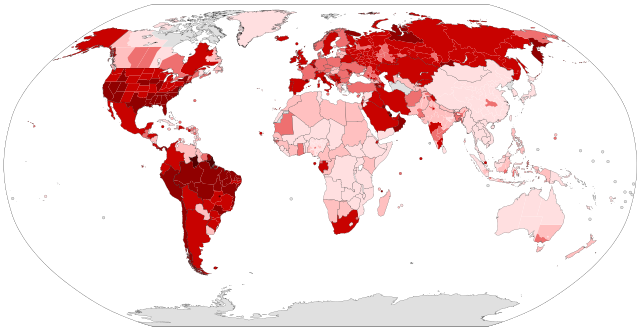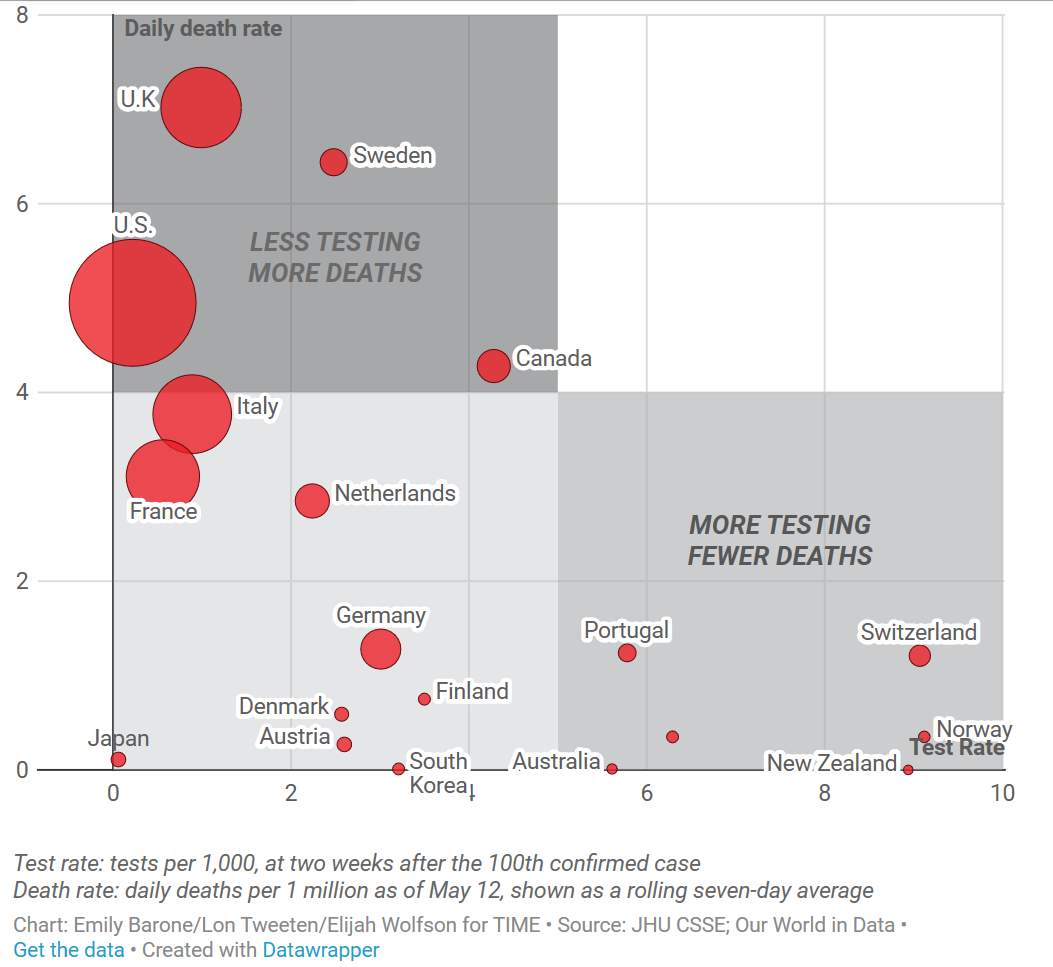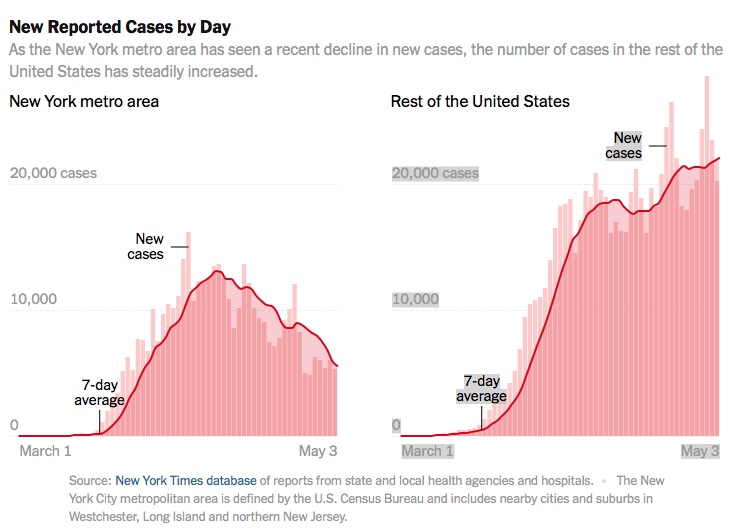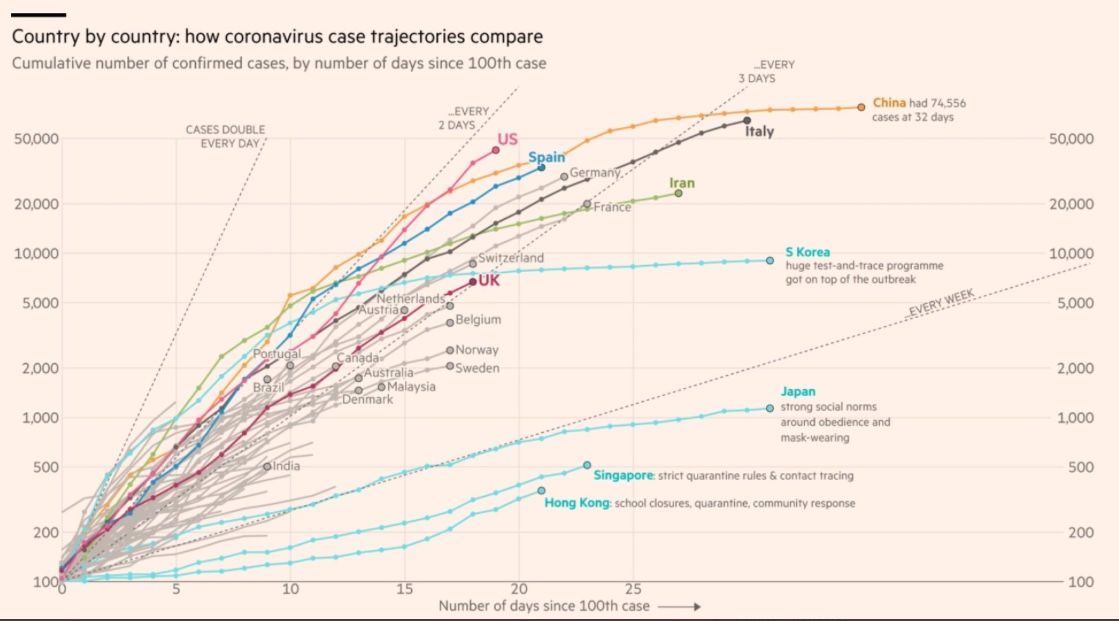How badly US performs on COVID compared to rest of G20
 Wednesday, July 29, 2020 at 6:06PM
Wednesday, July 29, 2020 at 6:06PM  COVID-19 Outbreak World Map per Capita (Wikipedia)Some simple back-of-the-envelope calculations that came to me while on a long bike ride today ...
COVID-19 Outbreak World Map per Capita (Wikipedia)Some simple back-of-the-envelope calculations that came to me while on a long bike ride today ...
Question: which G20 members have suffered a smaller/larger percentage share of global COVID deaths relative to their share of global population?
G20 encompasses 63% of world population, but it's the more economically advanced share, so we should expect the G20 as a whole to suffer less than 63% of global COVID deaths.
In truth, for now, it seems that the G20 account for roughly 4/5th of global deaths, or 80%. So, as a whole, the G20 underperforms. With all that wealth, you'd expect a share far below 63%. Of course, as the pandemic hits the world's poorer areas over time, the G20's share will drop. Still, not a good performance.
Let's look inside the G20 to see who's outperforming their global share of world population and who is underperforming. In the latter case, that country's percentage share of COVID deaths would exceed its percentage share of global population.
NOTE: all the numbers here come from Wikipedia sites, which draw upon reputable sources. Again, these are back-of-the-envelope calculations in search of a reasonably fair assessment of government performance.
First, a list of the G20 members outperforming on COVID (defined as percentage share of global population being higher than percentage share of global COVID deaths):
- China
- Indonesia
- Japan
- South Korea
- Australia
- Saudi Arabia
- India
- Argentina.
Now the list of G20 members basically performing as expected, meaning the percentage share of global population is roughly matched by the percentage share of COVID deaths:
- Russia
- South Africa
- Turkey
- Germany
- Canada.
So, 13 of the G20 performing as expected or better - stipulating that some nations are under-reporting but unlikely to be doing so in such a way as to change their performance from positive/average to bad in any profound sense.
Now for the underperformers:
- United States
- Mexico
- Brazil
- France
- Italy
- United Kingdom
- EU as whole.
Now the underperformers ranked by severity (defined as the biggest gap in percentage shares):
- EU: 27% COVID - 4% world pop = 23 percentage pt. gap
- United States: 23% - 4% = 19 pt. gap
- Brazil: 13% - 3% = 10 pt. gap
- United Kingdom: 7% - 1% = 6 pt. gap
- Mexico: 7% - 2% = 5 pt. gap
- Italy: 5% - 1% = 4 pt. gap
- France: 5% - 1% = 4 pt. gap.
If you translate that point gap into excess or preventable deaths, then it is expressed as follows:
- EU = 156,000 excess deaths
- United States = 126,000 excess deaths
- Brazil = 69,000 excess deaths
- United Kingdom = 39,000 excess deaths
- Mexico = 32,000 excess deaths
- Italy = 28,000 excess deaths
- France = 23,000 excess deaths.
If we fold UK, Italy, and France into the EU, then we're talking 383,000 lives in total.
We can debate the right adjective here: unnecessary, wrong, sacrificed, lost, etc.
I prefer to think of it as simply a rough estimate of what poor government performance - largely expressed in bad political leadership - actually costs in human lives during a disaster such as this.












